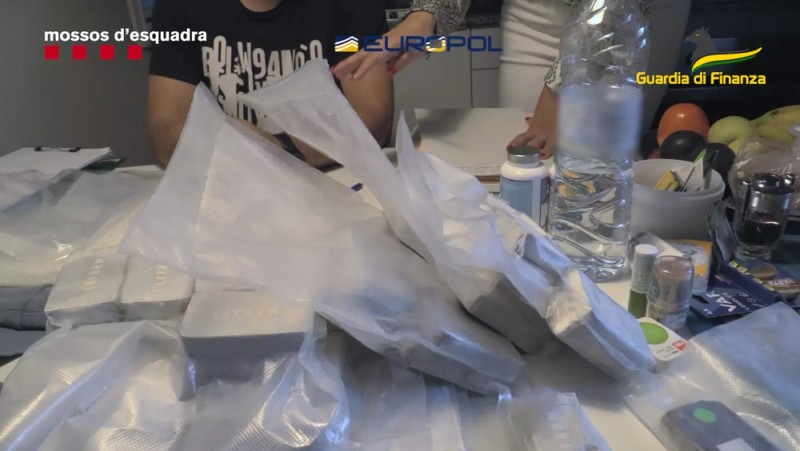During the operation conducted on October 17, authorities executed searches in 89 residences and apprehended 58 suspects in Italy. Meanwhile, their Spanish counterparts carried out searches in 25 locations and detained 20 individuals.
The operation yielded the seizure of a total of 350 kilograms of cannabis, 327 kilograms of hashish, and 33 kilograms of marijuana. Additionally, law enforcement confiscated weapons, electronic devices, documents, and assets valued at 845,000 euros (equivalent to US$890,367).
Eurojust, the EU Agency for Criminal Justice Cooperation, played a role in the investigation, dealing with a separate network responsible for laundering the illicit profits of the primary network. These two groups were connected through their leaders.
The investigation into the primary network, which was believed to be also involved in refilling cannabinoid-based electronic cigarettes, commenced in 2019 in Italy and in 2022 in Spain, with the first arrests occurring in November 2022.
Europol disclosed that the suspects facilitated the logistics of the trafficking operation by utilizing encrypted communication platforms such as Sky ECC and Encrochat.
The probe further unveiled that "Moroccan nationals based in Spain arranged the drug deliveries to Spain and subsequent shipment to various distributors in Italy." Various actors in the network facilitated the overall supply and logistical process, which included the collection, storage, transportation, and distribution of cannabis, as well as payment and money laundering activities.
Europol did not provide an estimate of the total value of the seized narcotics but noted that payments for the drug shipments were conducted through an informal banking system known as "fei-ch'ien." This system, specific to the Chinese underground, enables the transfer of cash from one country to another through a network of trusted offices, with money not physically transferred but compensated between offices afterward.



